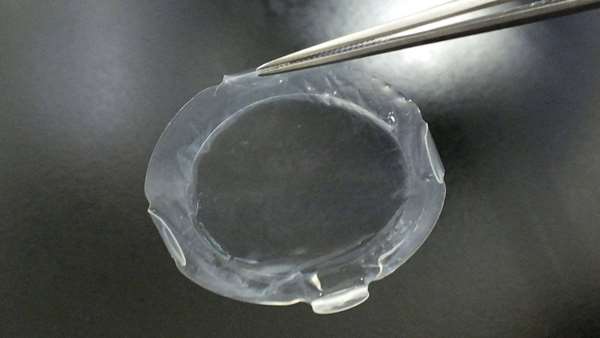An Osaka University research team said Monday it has concluded the world’s first clinical trial, spanning years, transplanting corneal tissues derived from induced pluripotent stem cells, or iPS cells, into four nearly blind patients was safe and effective.
None of the patients experienced rejection or tumorigenicity of the transplanted cells and all saw improvements in their symptoms, according to the Osaka University team led by Professor Koji Nishida.
Three of the patients experienced an improvement in vision, and one improved from 0.15 to 0.7, the team said. Developed by Shinya Yamanaka of Kyoto University, who won the Nobel Prize in Physiology or Medicine in 2012 for this achievement, iPS cells can turn into any type of body tissue.
The next step will be a clinical trial in 2023, with the aimof putting the treatment into practice in the next three to four years.
There is hope that the new treatment will solve problems such as transplant rejection and a chronic shortage of corneal donors. Approximately 1,700 patients were waiting for cornea donations in Japan as of the end of March 2021.
The procedure for the clinical trials involved culturing corneal cells from iPS cells from another individual stored at Kyoto University to create 0.05-millimeter-thick sheet-like corneal tissues.
“We hope that this procedure will be carried out all over the world,” Nishida told a news conference.
The transplants were performed between July 2019 and December 2020 on four patients between the ages of 30 and 70 who suffered from corneal epithelial stem cell deficiency, a condition caused by the loss of cells in the eye that the cornea produces.
There is no effective treatment for the disease, which can lead to worsening eyesight and vision loss, apart from transplants.
After monitoring the patients for a year, the team confirmed that the transplanted tissues were not rejected and that the opacity of the cornea had improved.
The cornea, a transparent membrane approximately 11 mm in diameter and 0.5 mm thick, is the outermost protective layer of the eye and serves as a lens and barrier against foreign substances.
https://worldrepublicnews.com/japan-team-proves-ips-based-cornea-transplants-safe-in-first-clinical-trial/




ارسال به دوستان